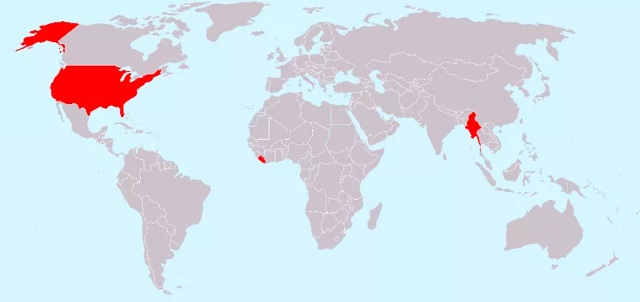Good morning, amid sporadic spikes in fresh COVID-19 infections across the nation, yesterday, India achieved a significant milestone in its massive vaccination program by fully vaccinating 86% of its adult population.
Also, the Drugs Controller General of India (DCGI) on Tuesday approved Bharat Biotech's Covaxin for emergency use in children between the ages of 6 and 12 years.
And if you really want to feel the deep, economy-suppressing effect of the pandemic today, try booking tickets and acco for the upcoming summer vacation. 😅
🌞🍈🍏🥤
PAAAs Comprise 24% Of Mumbai Home Registrations In Q1, 2022
In March, 2022, Mumbai saw its third-highest number of housing registrations in 10 years.
While many had their say (secondary market resilience, 1% metro cess in April, FOMO, et al), there is no denying the impact of the Permanent Alternative Accommodation Agreement (PAAA), per Vishal Bhargava.
What is it?
🔖 An agreement for housing redevelopment in Mumbai.
🔖 2021 saw these transactions surge with the Government’s FSI discount.
🔖 Home-owners in older buildings get flats in newer, redeveloped buildings without paying anything, while some flats are sold by the developer.
🔖 Developers (on paper at least) get to recover their costs while making some profits too.
🔖 Those getting these apartments have their PAAA legally executed. It is almost similar to the regular agreement for sale though the consideration is different.
Pros, Cons and Developments
🔼 Older flat owners get new accommodation, while vacating properties swiftly for developers to begin demolition.
🔼 They vacate after the inking of the PAAA.
🔼 This segment is surging in 2022, increasing the total registration count.
🔼 January-March 2022 saw 5,994 PAAA deals, comprising 24% of all housing registrations.
🔽 PAAA deals have reduced average transaction sizes (INR 1.15 crore in 2022 from INR 1.45 crore historically) too.
What lies ahead.
Today, redevelopments involving PAAAs are contributing significantly to the Mumbai housing market. Yet, the redevelopment boom is not going to be forever. Sometime soon one is going to run out of old buildings and the PAAA buzz may whittle down afterwards.
Ironically, as Mumbai knows all too well, reigning superstars do not rule the box office forever.
Wednesday Map Quest
Strong Responses, Explained By The IMF
Per the IMF's latest email, addressing pressures on growth and managing the difficult short-term trade-offs requires strong and coordinated policy responses from authorities, and these include:
💪 Protecting the most vulnerable from rising fuel and food costs. Social unrest has already flared where these pressures exacerbate vulnerabilities, such as Sri Lanka.
💪 Anchoring medium-term fiscal policy frameworks to ensure debt sustainability. With output gaps still large in many countries, the withdrawal of fiscal stimulus must be well calibrated to support the pandemic recovery.
💪 Tightening monetary policy where inflation is rising faster, such as Singapore, or above central-bank targets, as in Korea.
💪 Enacting economic reforms to boost long-term growth. This is particularly important in Asia’s emerging economies because they may see the most scarring from the pandemic.
HSBC Honks The Air Horn On Chinese Realty Market
COVID-19. Lockdowns. A beleaguered realty market. And further losses on the anvil, as warned by HSBC Holdings Plc, China’s biggest foreign bank - these are some of the latest postcards arriving in from the mainland.
What Up: HSBC’s Chief Financial Officer, Ewen Stevenson is already padding up for further provisions in 2022.
The bank’s already taken USD160 million as its provision against Chinese commercial realty in Q1, over and above the USD450 million provisioned in the quarter before.
Why HSBC’s pressing the panic button
📌 HSBC’s total exposure to China’s realty sector stood at USD21.3 billion as of 31st December, 2021. In the meantime, Chinese real estate giants are facing a yawning liquidity gap and morose sales figures.
📌 The 2020 crackdown to curb housing market speculation and borrowing has apparently backfired. A minimum of 17 companies have already defaulted on their offshore bonds ever since.
Future Imperfect
HSBC’s Stevenson had a sobering prediction, i.e. growth will be hit in China due to lockdowns. Indeed, economists do not see beyond 5% GDP growth in 2022, as China’s housing market stays in limbo with poor sentiments and plunging sales.
HSBC had earlier been scaling up investments and hiring in China as part of its dream Asian triumph, which was tapping an open financial market and enjoying its endless opportunities.
💭 However, if HSBC has anything to say to the powers-that-be today, we bet they’ll fall back on William Butler Yeats' - Tread softly, for you tread on my dreams.
---------------
🌏 Wednesday Map Quest: Regions marked in red on the world map are countries that do not use the metric system.
---------------
Look, we know about the hottest month in 122 years and all that. But what's a few dust storms and cloudless days when compared to the awesome feeling of reaching mid week in one piece.
Hang in there mate, we can almost see the shoreline of Friday.
More updates tomorrow, in our usual 7 AM email. 💚
☕ The Crew@Ginger Chai






